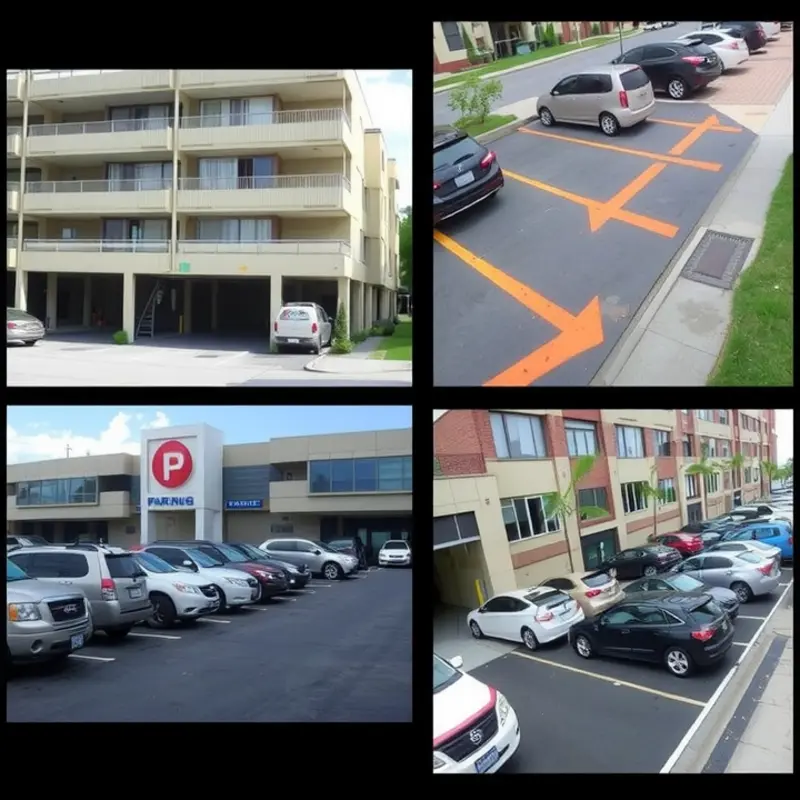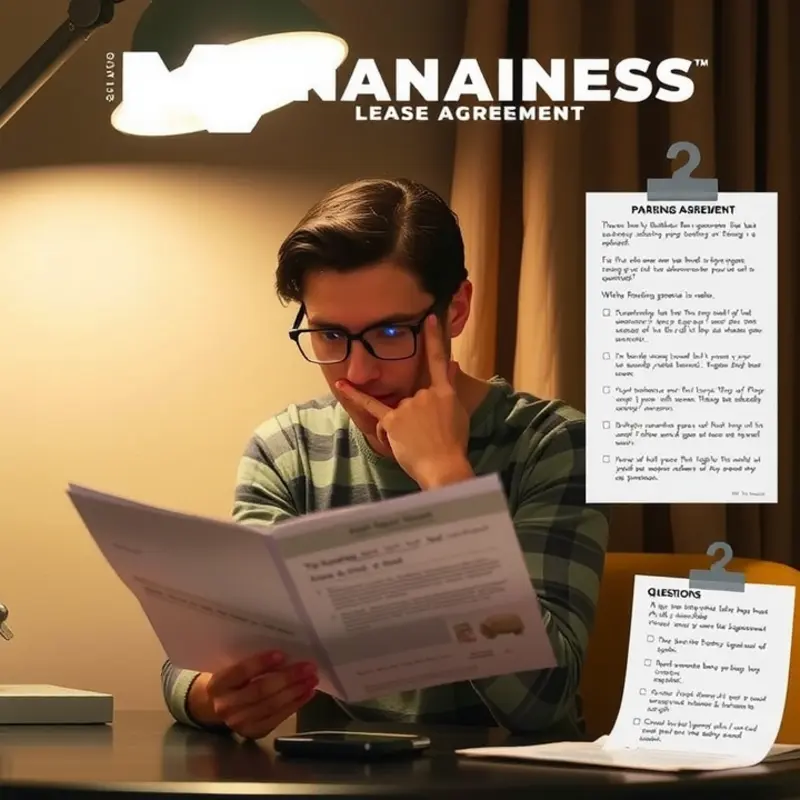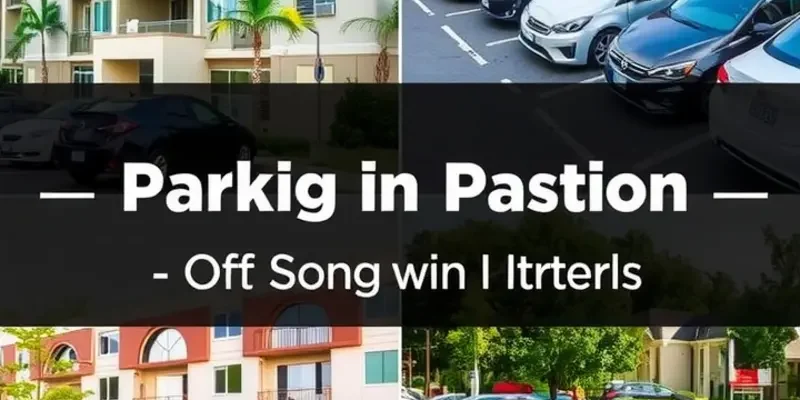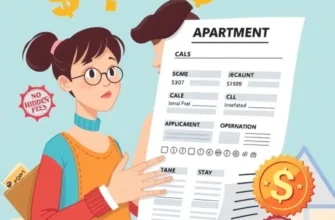Finding a new apartment can come with excitement mixed with a little anxiety, especially for young adults and first-time renters. One of the often-overlooked aspects of apartment hunting is figuring out the parking situation. Whether you’re a young professional needing a spot for your trusty ride, a couple who just got a second car, or a family squeezed into a compact urban space, understanding parking can make or break your living experience. From designated spots to potential fees, and the battle against street cleaning days—the complexities of parking can feel overwhelming. Fear not! We’ve got the insights and practical tips to make parking a breeze. Get ready to pack your bags and put your best foot forward because we’re diving into the ins and outs of apartment parking—from securing the coveted parking pass to mastering the art of parallel parking on a busy street!
Decoding Parking Options: What Do You Really Need?

When renting an apartment, parking can be just as crucial as having a roof over your head. The type of parking you choose will greatly influence your daily efficiency, expenses, and even your interactions with neighbors. Let’s explore the core parking options and assess their merits and drawbacks.
On-Site Parking typically offers the convenience of having your vehicle close by, providing security and easy access. Reserved spaces, either covered or uncovered, can elevate this convenience but may add a premium to your rent. The ability to park right next to your building ensures safety, especially at night, and saves time on daily commutes. However, limited spaces can pose challenges if you have more than one vehicle or when guests arrive. If frequent guest visits are part of your life, make sure that guest parking spots are available or that street parking nearby is feasible.
Off-Site Lots present an economical alternative and can be a blessing when on-site options are full or pricey. They’re often more abundant and can accommodate multiple vehicles. The trade-off is, of course, the distance. Walking or shuttling to off-site lots can be inconvenient, especially in bad weather. This option may require planning your routine around lot access hours and security considerations. In areas prone to severe weather, consider how vehicle safety is managed in these external lots.
Street Parking can be a gamble but is a lifeline in dense urban settings. It offers flexibility for both resident and guest vehicles, often without added cost. However, time limits, street cleaning schedules, and resident permits can complicate matters. For those without alternative parking, keeping track of regulations to avoid tickets is essential. Additionally, you may need to engage in the infamous “parking wars” over coveted spaces, impacting your daily schedule and patience.
Choosing between these options requires a clear examination of your current lifestyle. If you own multiple vehicles, an hour-long commute doesn’t align well with distant parking, consider on-site options. For vibrant social lives with frequent visitors, the flexibility of street parking or the availability of extensive guest parking is indispensable. Renters with nighttime schedules should prioritize safety and perhaps invest in on-site or secured off-site lots.
Thinking through these aspects can save you frustration and unnecessary costs. For tips on how to manage your budget effectively alongside these choices, visit Furnishing on a Budget. This guide can help stretch your dollar further, promoting intelligent long-term planning aligned with your parking needs.
Ultimately, your decision will come down to what conveniences and costs you prioritize. By considering your personal habits and future lifestyle changes, you’ll ensure your parking choice supports an efficient and enjoyable living experience.
Parking Pitfalls: Fees, Rules, and the Fine Print

Facing apartment parking can feel like navigating a complex maze. With fees hidden in the murky depths of leasing contracts and rules that vary as widely as the styles of apartment complexes, the parking component can be quite overwhelming. Here’s an overview to help you steer clear of the typical pitfalls.
The first mystery to unravel is parking fees. Landlords might charge extra for parking spaces based on their location, security, or even the level of cover provided. Some apartment complexes include a single parking slot in your rent but may charge for a second vehicle. It’s crucial to inquire upfront about these fees to avoid surprise charges later.
Beyond costs, the parking lease details often feature fine print that requires a discerning eye. Does your lease specify whether your parking spot is assigned or ‘first-come, first-served’? An assigned spot guarantees a space, while the latter can mean hunting for parking, especially late at night. Always clarify the specifics before signing the lease.
Ask your potential landlord about guest parking. Is guest parking easily accessible, and what are the vehicle limitations? In some complexes, guest parking is a rare commodity, tightly regulated and often far from your unit. This could affect both your social life and ease of inviting people over. Moreover, understand any quotas or time limits placed on these spaces to avoid having guests’ cars towed.
Speaking of towing, familiarize yourself with the complex’s towing policy. Inquire about the conditions under which a vehicle can be towed and what measures are in place to ensure residents are notified beforehand. This knowledge could save you from a nightmarish experience of finding your car has disappeared because of a misunderstanding or failure to display a parking permit.
Rules governing parking are not mere suggestions. They can cover everything from using allotted signage and decals to restrictions on using your parking space as storage. Some complexes implement stringent rules on this, and violation can lead to fines or loss of parking privileges.
For renters with bicycles or larger vehicles like RVs, it’s vital to ask about storage options. Not all complexes accommodate these, so solutions might come at an additional cost, or require an alternative arrangement. Being proactive can save a good deal of future hassle.
Finally, be aware of seasonal or weather-related parking rules, which can affect where and how you park during snowfalls or maintenance operations. Check for communications from your management to stay ahead of any required adjustments to your parking habits.
Understanding these aspects of parking will not only help avoid unwarranted expenses but also foster a harmonious living experience. It can also be useful to review more general tenant rights when it comes to repairs and other rental aspects, which you can find here.
Final words
Navigating the world of apartment parking might seem like a small piece of the renting puzzle, but it undeniably plays a significant role in your day-to-day life. By understanding your options and recognizing potential pitfalls, you can ensure that parking becomes one less thing to stress about in your new home. So as you embark on this journey into apartment renting, remember to keep your parking goals in mind and don’t hesitate to ask questions. After all, informed renters are happy renters! Now go forth and park with confidence!









